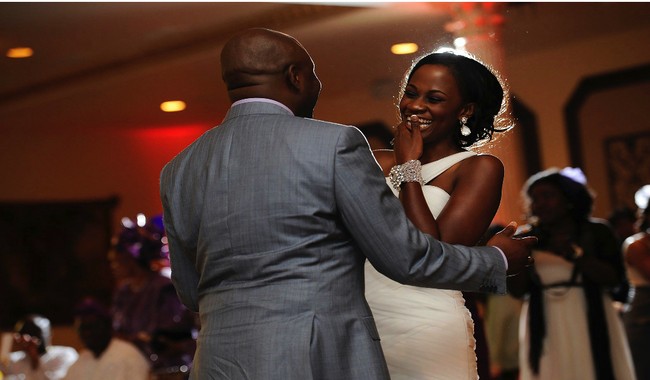This piece highlights how faith-based groups and prison programs are rebuilding family ties through events like father-daughter dances and family visits, and why those reconnections matter for rehabilitation, recidivism, and community stability.
My church partners with ministries that serve people behind bars and help them re-enter society, offering spiritual guidance and practical support throughout incarceration and after release. The core idea is simple: when families stay connected, prisoners have a stronger chance to rebuild their lives. Research supports that family involvement is a major factor in successful rehabilitation and reduced reoffending.
One organization at the center of this story focuses loudly on restoring family relationships as part of rehabilitation. They and their partners organize events that let incarcerated fathers meet their daughters, both young and grown, face to face. For many participants these moments are the first time they experience real, unguarded connection with their children.
In April, a major prison hosted its first father-daughter dance, an occasion full of gowns, tuxes, and sharp emotions. For some inmates it was the first time they’d ever worn a tux or held a child in a private, celebratory setting. Those scenes — hair, make-up, formal wear, and tears — are not just symbolic; they are part of a rehab process that restores dignity and hope.
Hair, make-up, gowns, tuxedos, and tears—San Quentin Rehabilitation Center was recently the scene of an emotional first-ever father-daughter prom.
For many of the incarcerated participants, it was the first time they’d ever donned a tux, the first time they spent one-on-one, face-to-face time with their daughter or daughters, and the first dance they’d ever had with their child.
For some, it was the first time they’d ever met their daughter.
“The entire event was extremely touching and heartening. There was not a dry eye in the house for MOST of the day!!! Lots of happy tears and smiles,” shared Morgan Hubbard with the group Friends of The People In Blue.
Seeing adult daughters sit down with their fathers showed that these programs are not just for small children; grown family members need reconciliation too. One participant described the simple act of putting on a tie as feeling like freedom, a small ritual that carried big emotional weight. A banner with a verse about sowing in tears and reaping with joy summed up the tone — sorrow turned toward hope.
There is a short video that captures some of these moments and the raw emotions on both sides of the visiting glass. The footage makes plain that rebuilding ties is not a quick fix, but it does plant seeds that can change behavior and outlook. When inmates reconnect with their children, they often gain motivation to pursue stability and avoid returning to old patterns.
Another prison held a quieter gathering with a smaller group of fathers, guardians, and kids, but the impact was the same: time to hug, play, eat, and simply be family for a few precious hours. For some fathers it was the first hug in years; for others it was a rare chance to hand over a personal Bible or offer a heartfelt note. Those ordinary gestures became sacred in a place where physical contact is usually limited and visits are tightly controlled.
Rebuilding family relationships is a cornerstone of true transformation. For incarcerated men, connection with their children provides hope and motivation to become better men, both inside and outside prison walls.
Events like this father-daughter dance in San Quentin directly impact the future—not only for these dads but for their daughters, families, and communities. Your support is changing the narrative and breaking the cycle.
Spending hours playing basketball, dancing to live music, or simply sharing a meal gave these families a sense of normalcy that rarely exists behind bars. The rare gift of time allowed fathers to show up as parents rather than as inmates, and that presence can have a ripple effect on children’s long-term wellbeing. Those moments are the kinds of small, real-life interventions that help reduce reoffending down the road.
Picture this: sixteen incarcerated fathers, sixteen guardians, and twenty-seven kids all gathered in one room. For some of these dads, it had been years since they last hugged their children. One father hadn’t embraced his daughter since her high school graduation. Another held his four-year-old son, weeping, as he gave him the very first Bible he’s ever owned, complete with a heartfelt note written just for him!
In prison, physical contact is usually limited to just two hugs per visit. But this day was different. These dads were given the rare and precious gift of time. Time to hold their kids close. Time to play basketball and ping pong. Time to sit side by side and share a simple meal as a family. For those few hours, they weren’t inmates… they were simply dads. They were present. They were home.
It’s easy to take the little things for granted until they’re taken away. But on this day, the ordinary became sacred.
One little girl curled up on her father’s lap, catching up on all they had missed. Nearby, a young boy twirled around to the rhythm of live music from the prison’s worship group, “The Creek Band.” For the first time, these fathers got to dance with their children to live music. One dad said it was the best visit he’s ever had. Moments like these are why prison ministry is so life-changing. Not just for the inmates, but for their families too!
Programs that rebuild family bonds matter because most incarcerated people will return to their communities one day, and many will struggle without support. Statistics shared by those running these initiatives underline the urgency: only a small share serve life, while the vast majority will be released, and recidivism rates show there is room for improvement. Restoring relationships, encouraging faith, and offering practical help work together to give former inmates a better shot at staying out of trouble.
The idea that turning hearts back to family can change futures is not new, and these events offer a practical, compassionate application of that principle. When fathers are present in meaningful ways, the whole community benefits — children, families, and neighborhoods. These programs are a reminder that rehabilitation is more than rules and punishment; it’s about repairing the human bonds that keep society strong.





Add comment